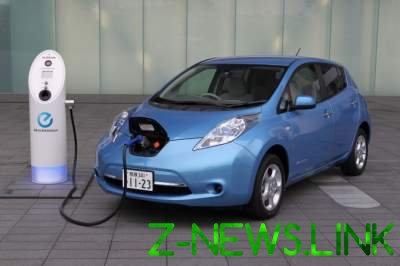 Experts told, what are the expected features of electric cars are true and which are confusing motorists.
Experts told, what are the expected features of electric cars are true and which are confusing motorists.
About electric cars, a lot of rumors and assumptions. They relate both to their operation and production. Experts have gathered the most popular myths and the verdict about the level of truthfulness of each.
Production of electric costs the environment more than the production of traditional
The verdict: true.
Studies show that the creation of the electric car requires much more electricity. Not difficult to guess, the reason for this are the huge battery. To create them you have to spend many times more energy. For example, Mercedes released the model B with the internal combustion engine and an electric motor. In the case of the first stage of production accounts for 18% of the total pollution from the car, with an electric version on the production accounts for 45% of all contaminants.
For the sake of justice it is necessary to clarify that electric vehicles are “dirtier” only until such time as the dealer sells them. After cars with internal combustion engines quickly catching up. Also, the purity of EV is affected, where does the energy in gas stations. If they have no fossil-fuel power stations, the operation of electric car is only 25% more environmentally friendly. If refueling nourish hydroelectric or other plants on renewable energy, a comparative eco-friendliness crosses over 64%.
Battery electric cars are the bomb
The verdict: false.
For the most part, lithium-ion batteries are recyclable. The probability that someone is after the life of the car will start just buried in the ground small. A modern system of control and processing can negate the danger of lithium-ion batteries. If you compare the burning of fossil fuels and processing of batteries, the last harm to the environment in recent years is negligible. While the first is responsible for the formation of the main part of greenhouse gases.
The increasing number of electric cars overload the grid
The verdict: false.
Traditional EV that can be recharged at a power of 3.2 kW from a regular home network when current exceeds 16 Amps. It turns out that cars are more convenient to consumers than hair dryers and electric stoves. Norwegian scientists estimate that by 2030 they have on the roads will be 1.5 million electric vehicles. For networks this will result in increase of load of only 3%.
The battery has a short life span and expensive to change
The verdict: false.
Nissan cites that most of their Leaf is used as a taxi. After 200 thousand km battery capacity fell by only 25%. Tesla and did declare that after 320 thousand km, the battery will “live” on 90%. It turns out that modern batteries live as much as the engine. As for replacement, it is not necessary to change the whole battery, it is possible to change individual cells. If we are talking about the battery, Nissan recently announced the price tag for such a service — $5 499.
Electric cars transfer pollution from one place to another
Verdict: partially true.
This is a popular accusation against EV. It is that alone of course electric cars do not emit pollution, but pollution are produced during electricity generation for them. That is, if before the engine was allocated CO2 directly where operated, now CO2 is released when burning coal to generate electricity. Can not argue with that. Indeed, electricity is not taken out of nowhere. But there are a few important points. Electricity production is becoming more “green”. Whole countries refuse from coal, and this means that electric vehicles become cleaner.
EV themselves are designed to more efficiently consume energy from the batteries. And the energy that is needed for the EV travel is much less than conventional vehicles with internal combustion engines. The transport of pollution out of the city, to some extent, can also be perceived as a plus. The concentration of smog in the city is reduced. But with the development of power plants, the myth will be more and more false. Even today EV already 25-65% safer for the environment.
© 2017 – 2019, paradox. All rights reserved.





